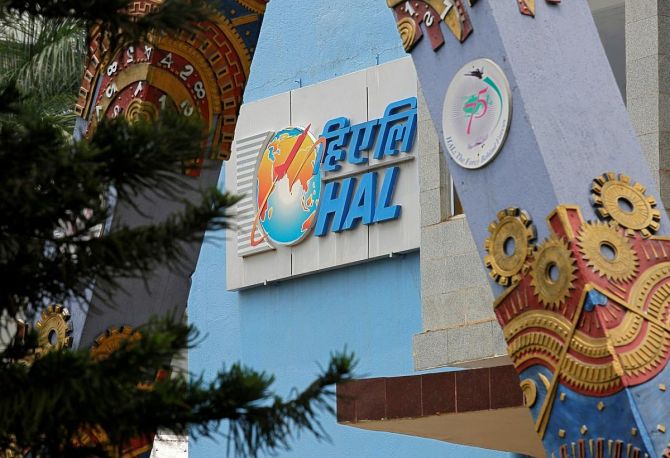HAL is the primary supplier of India's military aircraft, helicopters, engines, avionics and accessories and the main provider of maintenance for defence aerospace

Hindustan Aeronautics (HAL) is one of the largest beneficiaries of the defence indigenisation programme.
The aerospace Public Sector Undertaking (PSU) has just received a new tender for 97 Light Combat Aircraft (LCA) Tejas Mk1A, and it is already servicing an earlier order for 83 LCA aircraft.
The new order is worth around Rs 65,000 crore with a 65 per cent indigenisation component, whereas the earlier order (February 21) was worth Rs 45,700 crore with 55 per cent indigenisation.
HAL has a 3-month deadline to respond to the new tender.
HAL is the primary supplier of India’s military aircraft, helicopters, engines, avionics and accessories and the main provider of maintenance for defence aerospace.
It has a current order book of Rs 82,000 crore and the new orders could mean long-term sustainable demand and an order book with a 5-year pipeline of over Rs 2 trillion by FY26.
It will also mean improved technological capabilities as HAL develops advanced platforms for Tejas and the successor Advanced Medium Combat Aircraft (AMCA).
HAL already has capability in design development tasks such as master geometry development, detail design analysis, testing of wind tunnel models, testing of aircraft structures and sub-systems.
Servicing this should mean better margins due to scale and operating leverage and it may translate into export orders.
The higher indigenisation levels at 65 per cent plus implies a big opportunity for domestic companies.
The value chain includes electronics manufacturers (radar, avionics, electronic warfare, and related components) such as Bharat Electronics (BEL), Astra Microwave and Data Patterns.
It could include fuselage fabricators like Dynamatic Technologies and wing makers like L&T and other component makers like Mishra Dhatu Nigam and Lakshmi Machine Works.
Hence, the entire military/aerospace industrial complex may benefit.
Defence procurement always has a lumpy nature but overall, the order should mean annual growth of around 15 per cent in revenue terms for the next five years.
HAL recently expanded its Tejas Mk1A fighter aircraft manufacturing capacity from 8 to 16 per year and is working on expanding it further to 24 (with two new lines at the Bengaluru complex and another at Nashik), sufficient to deliver 10 squadrons over FY23-32, based on the platform-wise production assessment.
It has also expanded its rotary wing platform's manufacturing capacity to meet the growing demand for locally designed and manufactured aircraft.
In FY23, HAL had a top line of Rs 26,160 crore, with an operating profit of Rs 6,761 crore, (margin at 25.8 per cent) and a net profit of Rs 5,827 crore.
In FY24, HAL could report full-year revenue of Rs 28,700 crore, with an estimated operating profit of Rs 6,903 crore (margin of 24.1 per cent) and net profit of Rs 5,533 crore.
In FY25, assuming good execution, HAL could register Rs 32,886 crore, an operating profit of Rs 7,824 crore (margin of 23.8 per cent) and a net profit of Rs 6,294 crore.
FY26 operating profit margin should recover to around 25 per cent as operating leverage kicks in and revenues could hit Rs 37,850 crore.
The PSU has no debt to speak of and it may have a negative working capital profile and high free cash flow.
As manufacturing of LCA, and of Light Combat and Light Utility Helicopters ramps up, HAL should also see a commensurate rise in maintenance repair and overhaul.
While the stock has run up 85 per cent in the last six months, it could see further gains as the market factors in the new orders.
Disclaimer: This article is meant for information purposes only. This article and information do not constitute a distribution, an endorsement, an investment advice, an offer to buy or sell or the solicitation of an offer to buy or sell any securities/schemes or any other financial products/investment products mentioned in this article to influence the opinion or behaviour of the investors/recipients.
Any use of the information/any investment and investment related decisions of the investors/recipients are at their sole discretion and risk. Any advice herein is made on a general basis and does not take into account the specific investment objectives of the specific person or group of persons. Opinions expressed herein are subject to change without notice.












 © 2025
© 2025